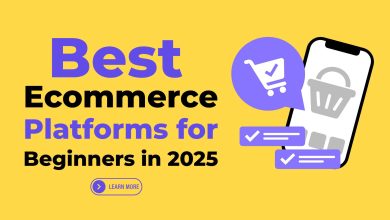Power of Online Business – A Comprehensive Exploration 2023
The Power of Online Business
In the dynamic landscape of the 21st century, the phrase “power of online business” resonates as a mantra for economic growth, entrepreneurial success, and global connectivity. The advent of the internet has transformed the way we conduct commerce, breaking down geographical barriers and opening up unprecedented opportunities for individuals and enterprises alike. This essay explores the multifaceted aspects of the power of online business, delving into its impact on the economy, the entrepreneurial spirit, and the interconnected nature of the digital age.
Table of Contents
The online business ecosystem is a force to be reckoned with, driving economic growth and reshaping traditional business models. With the rise of e-commerce platforms, businesses of all sizes can reach a global audience, transcending the limitations of brick-and-mortar establishments. The power of online business lies in its ability to democratize commerce, providing a level playing field for small startups and established enterprises alike. In the digital realm, innovation and agility often trump size, allowing nimble startups to disrupt industries and challenge established norms.
One of the key strengths of online business is its capacity to harness data for informed decision-making. The digital landscape is a treasure trove of information, offering insights into consumer behavior, market trends, and competitive landscapes. Through analytics tools, businesses can analyze vast datasets, gaining a nuanced understanding of their target audience and adapting their strategies accordingly. This data-driven approach empowers businesses to refine their products or services, optimize marketing efforts, and enhance customer experiences, amplifying the overall power of online business.
Moreover, the power of online business extends beyond mere transactions; it fosters a vibrant entrepreneurial spirit. The internet has become a breeding ground for innovation, where aspiring entrepreneurs can transform their ideas into reality with minimal barriers to entry. Online platforms provide a global marketplace for creative minds, allowing them to showcase their products or services to a diverse audience. This accessibility fuels a culture of entrepreneurship, empowering individuals to pursue their passions and turn them into sustainable online ventures.
Also Read… Online Business Ideas in Kerala : Comprehensive Guide – 2023
The power of online business is particularly evident in the realm of social entrepreneurship, where enterprises are driven not only by profit but also by a commitment to positive social and environmental impact. Online platforms enable social entrepreneurs to connect with like-minded individuals, access funding through crowdfunding campaigns, and amplify their messages through digital marketing. This convergence of business and social responsibility showcases the transformative power of online business in addressing societal challenges and fostering sustainable development.
The interconnected nature of the digital age further amplifies the power of online business. Through social media, businesses can engage directly with their customers, build brand loyalty, and leverage user-generated content for marketing purposes. The ability to create online communities and foster a sense of belonging enhances the overall customer experience, turning transactions into relationships. This interconnectedness extends to the business-to-business (B2B) realm, where online platforms facilitate seamless collaboration, supply chain management, and communication between different entities in the global business ecosystem.
Additionally, the power of online business is evident in its role as a catalyst for job creation and economic inclusivity. As traditional barriers to entry crumble, individuals from diverse backgrounds can participate in the digital economy. Freelancers, remote workers, and digital nomads contribute to a flexible and decentralized workforce, transcending geographical constraints. The gig economy, facilitated by online platforms, provides opportunities for individuals to monetize their skills, creating a more inclusive and accessible job market.
E-commerce, a prominent subset of online business, has become a cornerstone of retail in the digital age. The power of online business in the e-commerce sector is manifested in the convenience it offers to consumers. With a few clicks, individuals can browse a vast array of products, compare prices, and make purchases from the comfort of their homes. This convenience factor has reshaped consumer behavior, influencing the way people shop and driving traditional retailers to adapt to the online landscape.
Furthermore, the power of online business is exemplified by the transformative impact it has had on traditional brick-and-mortar establishments. Businesses that once relied solely on physical storefronts are now embracing the online realm to expand their reach and remain competitive. The integration of online and offline channels, known as omnichannel retailing, is a testament to the adaptability and power of online business. This synergy allows businesses to provide a seamless and integrated customer experience, leveraging the strengths of both digital and physical platforms.
Ready Made Digital Store with 100 Products

The power of online business is not without its challenges. Cybersecurity threats, data privacy concerns, and the potential for digital monopolies are among the issues that warrant careful consideration. As online business continues to evolve, policymakers, businesses, and consumers must collaborate to establish ethical standards, regulatory frameworks, and best practices that ensure the responsible and sustainable growth of the digital economy.
Scope of Online Business
The scope of online business is vast and continually expanding, driven by technological advancements, changing consumer behavior, and the globalization of markets. As the digital landscape evolves, the scope of online business encompasses various dimensions that present opportunities for entrepreneurs and established enterprises alike.
1. Global Reach:
- International Market Access: Online business provides a platform for businesses to reach a global audience. Geographical boundaries become less restrictive, allowing companies to market and sell their products or services to customers around the world.
2. E-Commerce:
- Retail Revolution: The core of online business lies in e-commerce, where businesses can set up virtual storefronts, reaching customers 24/7. This includes the sale of physical goods, digital products, and services.
3. Digital Marketing:
- Targeted Advertising: Online business leverages digital marketing strategies, including social media advertising, search engine optimization (SEO), and email marketing, to reach specific target audiences. This targeted approach enhances the efficiency of marketing efforts.
4. Tech-Driven Innovation:
- Innovative Solutions: The scope of online business is characterized by technological innovation. Emerging technologies such as artificial intelligence, virtual reality, and blockchain are integrated into online business models, offering new and innovative solutions.
5. Freelancing and Remote Work:
- Global Workforce: The rise of online platforms has led to the growth of freelancing and remote work. Individuals can offer their skills and services globally, creating opportunities for a flexible and decentralized workforce.
6. Content Creation and Monetization:
- Digital Content Platforms: Online business extends to content creation, where individuals and businesses can monetize content through platforms such as YouTube, podcasts, blogs, and online courses.
7. Financial Technology (Fintech):
- Digital Transactions: The scope of online business includes the realm of financial technology, facilitating digital transactions, online banking, and the emergence of cryptocurrencies.
8. Social Entrepreneurship:
- Positive Impact: Online business isn’t solely focused on profits. Social entrepreneurship leverages online platforms to address social and environmental issues, fostering positive change while maintaining a sustainable business model.
9. Data Analytics:
- Informed Decision-Making: The scope of online business emphasizes the importance of data analytics. Businesses can gather and analyze data to make informed decisions, optimize processes, and enhance customer experiences.
10. Cross-Channel Integration:
- Omnichannel Strategies: Successful online businesses often employ omnichannel strategies, integrating online and offline channels for a seamless customer experience.
11. E-Learning and Online Courses:
- Educational Platforms: The online business scope extends to education, with the rise of e-learning platforms offering a variety of courses. This includes traditional academic courses, skill-based training, and professional development programs.
12. Subscription Models:
- Recurring Revenue: Many online businesses adopt subscription models, providing products or services on a recurring basis. This approach fosters customer loyalty and ensures a steady revenue stream.
13. Collaborative Platforms:
- Business-to-Business (B2B) Collaboration: Online business facilitates collaboration between businesses through B2B platforms, streamlining supply chain management, and fostering partnerships.
14. Customer Engagement:
- Interactive Experiences: The scope of online business emphasizes customer engagement through interactive experiences, social media interactions, and personalized communication.
15. Cybersecurity and Trust:
- Security Measures: As online business expands, the importance of cybersecurity and building trust with customers becomes paramount. Implementing robust security measures is essential to protect sensitive information.
In essence, the scope of online business is dynamic, continually evolving to embrace new technologies and respond to changing market demands. Entrepreneurs and businesses that recognize and adapt to this expansive scope are well-positioned to thrive in the digital age.
Ready Made Digital Store with 100 Products

New Trends in Online Business
As the digital landscape continues to evolve, several new trends in online business are shaping the way companies operate, connect with consumers, and stay competitive. Here are some of the notable trends in online business:
1. Live Commerce:
- Real-Time Shopping Experiences: Live commerce involves live-streamed content, where businesses showcase and sell products in real-time. This interactive approach combines entertainment with shopping, allowing consumers to ask questions and make purchases directly during the live session.
2. NFTs (Non-Fungible Tokens):
- Digital Asset Ownership: Non-fungible tokens (NFTs) are unique digital assets, often used for digital art and collectibles. Businesses are exploring ways to leverage NFTs for digital marketing, ownership verification, and creating unique digital experiences.
3. Sustainability and ESG (Environmental, Social, Governance) Practices:
- Conscious Consumerism: Online businesses are increasingly adopting sustainable and socially responsible practices. Consumers are placing greater emphasis on eco-friendly products, ethical sourcing, and businesses that align with their values.
4. Voice Commerce:
- Voice-Activated Shopping: With the rise of virtual assistants and smart speakers, voice commerce is gaining momentum. Consumers can now make purchases using voice commands, and businesses are optimizing their online platforms for voice search.
5. Augmented Reality (AR) and Virtual Try-Ons:
- Enhanced Shopping Experiences: AR technology is being used to provide virtual try-on experiences for products like clothing, accessories, and even furniture. This trend enhances the online shopping experience by allowing customers to visualize products in their own environment.
6. Subscription-Box Services:
- Curated Convenience: Subscription-box services continue to thrive, offering curated products delivered regularly to subscribers. Businesses are exploring niche markets and providing personalized subscription options to cater to specific customer preferences.
7. Metaverse Exploration:
- Virtual Spaces: The concept of the metaverse, a collective virtual shared space, is gaining attention. Businesses are exploring opportunities within virtual worlds for marketing, events, and even establishing virtual storefronts.
8. Social Commerce Integration:
- Seamless Shopping on Social Platforms: Social media platforms are becoming more commerce-focused, allowing businesses to sell products directly within the platform. Social commerce integrates the shopping experience with social interactions.
9. Remote Collaboration Tools:
- Virtual Collaboration Platforms: With the growth of remote work, businesses are utilizing advanced collaboration tools for virtual meetings, project management, and team communication. These tools enhance productivity and streamline remote work operations.
10. Blockchain Technology:
- Enhanced Security and Transparency: Blockchain technology is being implemented for secure and transparent transactions. It offers benefits such as enhanced cybersecurity, reduced fraud, and increased transparency in supply chain management.
11. Inclusive and Diverse Marketing:
- Representation and Inclusivity: Businesses are increasingly focusing on inclusive marketing strategies that reflect diversity. Brands are recognizing the importance of representing a broad range of demographics in their advertising and marketing materials.
12. Ephemeral Content:
- Temporary, Time-Sensitive Content: Ephemeral content, such as stories on platforms like Instagram and Snapchat, is gaining popularity. Businesses use this format to create a sense of urgency and engage audiences with time-sensitive promotions.
13. Edge Computing:
- Faster Processing: Edge computing involves processing data closer to the source rather than relying on a centralized server. This trend enables faster loading times for online platforms, improving user experiences and reducing latency.
14. Interactive Video Content:
- Engagement Through Interactivity: Businesses are leveraging interactive video content, allowing viewers to make choices within the video or engage with the content in real-time. This trend enhances user engagement and creates a more personalized experience.
15. Evolving Payment Methods:
- Digital Wallets and Cryptocurrencies: The landscape of online payments is evolving with the increasing adoption of digital wallets and cryptocurrencies. Businesses are incorporating diverse payment options to cater to the preferences of a global customer base.
Keeping abreast of these trends is crucial for businesses aiming to stay competitive and innovative in the dynamic world of online commerce. Embracing these trends can lead to enhanced customer experiences, improved operational efficiency, and a more resilient online business model.
Ready Made Digital Store with 100 Products

Advantages and Disadvantages of Online Business
Advantages of Online Business:
- Global Reach:
- Pro: Online businesses can reach a global audience, transcending geographical limitations and expanding market potential.
- Cost Efficiency:
- Pro: Operating online often incurs lower overhead costs than traditional brick-and-mortar businesses, including reduced expenses for physical space and utilities.
- 24/7 Availability:
- Pro: Online businesses can operate 24/7, allowing customers to make purchases or access information at any time, increasing convenience.
- Flexibility:
- Pro: Online business models offer flexibility in terms of working hours and location, enabling entrepreneurs to manage their businesses remotely.
- Data-Driven Decision Making:
- Pro: Online businesses can leverage data analytics to gather insights into customer behavior, preferences, and market trends, enabling informed decision-making.
- Diverse Revenue Streams:
- Pro: Online businesses can explore various revenue streams, such as e-commerce sales, affiliate marketing, advertising, and subscription models, diversifying income sources.
- Targeted Marketing:
- Pro: Digital marketing tools allow for precise targeting of specific customer demographics, increasing the effectiveness of advertising efforts.
- Accessibility:
- Pro: Online businesses provide accessibility for individuals with disabilities, aligning with inclusivity principles.
- Easier Scaling:
- Pro: Scaling an online business can be more straightforward compared to traditional businesses, with the ability to reach larger audiences without significant physical expansion.
- Reduced Barriers to Entry:
- Pro: Starting an online business often requires less capital and fewer bureaucratic hurdles compared to establishing a physical storefront.
Ready Made Digital Store with 100 Products

Disadvantages of Online Business:
- Cybersecurity Risks:
- Con: Online businesses are susceptible to cybersecurity threats, including data breaches and hacking, which can compromise sensitive information.
- Lack of Personal Interaction:
- Con: The absence of face-to-face interaction can result in a lack of personal connection with customers, impacting relationship building and customer trust.
- Dependence on Technology:
- Con: Online businesses heavily rely on technology, and technical issues, such as server outages or website crashes, can disrupt operations.
- Intense Competition:
- Con: The online marketplace is highly competitive, with numerous businesses vying for attention. Standing out requires effective marketing and differentiation strategies.
- Digital Divide:
- Con: Not all potential customers may have equal access to the internet, creating a digital divide that limits the reach of online businesses.
- Logistical Challenges:
- Con: Managing logistics, including shipping, inventory management, and product returns, can be complex and pose challenges for online businesses.
- Online Reputation Management:
- Con: Online businesses are vulnerable to negative online reviews and social media backlash, requiring diligent reputation management.
- Legal and Regulatory Compliance:
- Con: Online businesses must navigate complex legal and regulatory requirements, including data protection laws and taxation issues, which can vary across jurisdictions.
- Technology Dependence:
- Con: Relying on technology means that online businesses need to stay updated with the latest trends and continually invest in technological infrastructure.
- Customer Reluctance:
- Con: Some customers may be hesitant to provide personal information online due to privacy concerns, impacting data collection and marketing efforts.
Balancing these advantages and disadvantages is crucial for entrepreneurs looking to establish and grow successful online businesses. Understanding the challenges and proactively addressing them is essential for sustained success in the digital marketplace.
Conclusion
In conclusion, the power of online business is a transformative force that permeates every facet of the modern economy. From reshaping traditional business models to fostering entrepreneurial innovation, from creating global connectivity to driving economic inclusivity, the influence of online business is undeniable. As we navigate the ever-evolving landscape of the digital age, harnessing the power of online business responsibly and ethically will be crucial for ensuring a sustainable and prosperous future. The journey into the digital frontier has just begun, and the power of online business will continue to shape our world in ways we are only beginning to comprehend.
Ready Made Digital Store with 100 Products

Keywords : The Power of Online Business , The Power of Online Business 2023 , The Power of Online Business trends , The Power of Online Business scope , The Power of Online Business in india , The Power of Online Business in the world , The Power of Online Business and ecommerce , The Power of Online Business and internet marketing , The Power of Online Business and AI , The Power of Online Business nowadays , The Power of Online Business you need to know



